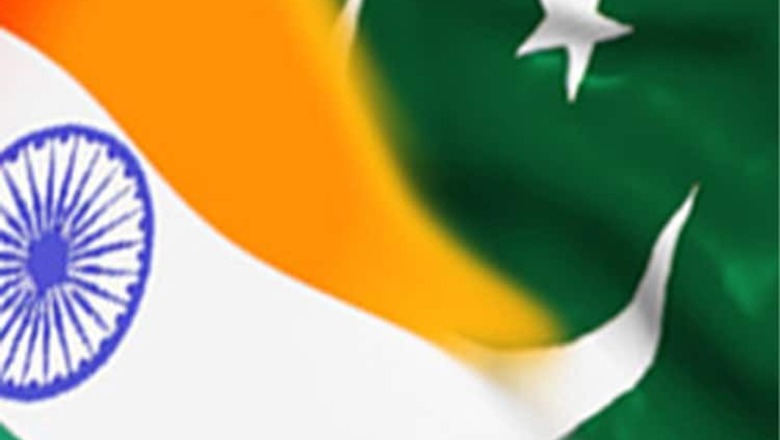
views
Washington: Pakistan wants to have a "normal" relationship with India, the visiting Foreign Secretary Aizaz Ahmad Chaudhry said on Thursday and blamed New Delhi for suspending the bilateral dialogue process. "We want to have normal relationship with India. There is a political consensus in Pakistan on this," Chaudhry told a Washington audience during his appearance at the Atlantic Council, a US think-tank.
Noting that India lacks such kind of political consensus, Chaudhry alleged that it is the Indian government which has stopped the Indo-Pak dialogue. "Pakistan is open to dialogue with India. The only solution to move forward is dialogue, the dialogue is suspended because of India," Chaudhry, who is here for the US-Pak Security, Strategic Stability, and Nonproliferation dialogue, said.
"Indians have said that they would like to have dialogue in an environment free of terrorism. So do we say that," he said, adding, "We are ready, when India is ready to talk". India had suspended the scheduled foreign secretary level talks with Pakistan in August last year after Pakistani envoy in New Delhi met Kashmir separatists on the eve of the dialogue. Responding to a question, the top Pakistani diplomat said that nuclear weapons are a great stabilising factor in South Asia and that the two nuclear power countries need to act responsibly.
The Indo-US civilian nuclear deal was a great destabilising factor in the region, he said, and sought inclusion of Pakistan in the international nuclear community. Nuclear weapons in Pakistan, he claimed, are safe and secure. A lot of investment has been made to ensure that there is no threat to the nuclear weapons and installations, he said.
Pakistan, he said, is fully committed to ensure its territory is not used by terrorists to create instability within its country and to any other country including our neighbours. "There has been a paradigm shift in Pakistan in the last one year in this regard. There are no good or bad terrorists, they are only liabilities.
As a result we have achieved remarkable success (in fight against terrorism)," the foreign secretary said. Responding to a question on Indus Water Treaty, he alleged there has been an attempt by India in trying to get more share of water by building a series of dams on its tributaries.
"We have challenged that," he said. Pakistan want to have a peaceful coexistence with India, he said, adding that Pakistan Prime Minister Nawaz Sharif had a very good meeting with his Indian counterpart Narendra Modi at his swearing in ceremony in May last year. Chaudhry claimed Pakistan is taking extra steps to bring the perpetrators of the Mumbai terrorist attack to justice, despite the fact it has not received enough evidence against those who were responsible for it.
On Afghanistan, Chaudhry said that Pakistan supports an Afghan lead reconciliation that could lead to enduring peace. A successful reconciliation in Afghanistan can provide stimulus for managing other intractable issues that directly or indirectly contribute to instability such as return of millions of Afghan refugees, narcotics and cross-border terrorist network, he said.
"We sincerely hope that the international community will continue to undertake its responsibilities in Afghanistan," he said. The Foreign Secretary said security challenges in South Asia are not unique only to a single country and the solution too cannot be pinned on a single country.
Terrorist and illicit networks today thrive across regions and cultures. They have a symbiotic relationship, which makes a zero sum view of security untenable for achieving peace, he said. "We can all win or we will all loose!" the Foreign Secretary said.
"Pakistan's efforts to achieve security have started at home. We are determined not to allow our territory to be used against any of our neighbours. We expect the same from neighbours as well," he added.



















Comments
0 comment